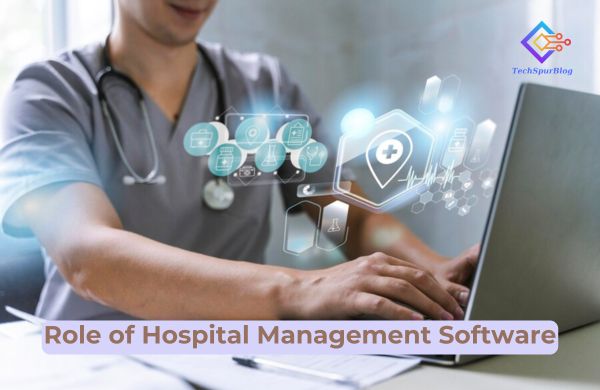
The healthcare sector has seen a paradigm shift in the last two decades or so from traditional paper-based systems to highly sophisticated digital solutions. In this scenario, HMS has surfaced as the novelty transforming the very basis of hospital operations. Advanced technology hereby integrates into these systems to simplify complex processes, improve patient care, and make delivering health care more efficient.
The Emergence of Hospital Management Systems in Healthcare
Modern healthcare needs have led to the integration of the latest tools to enable hospitals to meet their widely expanding operational demands. Most people today consider them as old-fashioned and inefficient since they always dealt with things based on manual procedures. Hospital Management Systems in healthcare have transformed the way hospitals operate as they now offer a central hub for managing patient records, staffing schedules, billing, and inventory.
Today, HMS is no longer a tool used to make something easy; it’s rather an overall system nicely designed to cater to the dynamic needs of any hospital. It runs everything from automation of routine to actionable insights whereas systems have become essentials for modern-day healthcare providers.
Role of Hospital Management Software in India
The Indian healthcare sector is very different from others because of its large numbers, heterogeneity of populations, and the type of infrastructure.
The solution to those challenges is addressed by the Hospital Management Software in India that addresses this country’s requirements.
Above all, cloud-based HMS helps hospitals connect quality ambulance services with its users in its technology advancement, bridging the gap in healthcare delivery between urban and rural areas.
Also Read: VoIP in Hospitality: Elevating Guest Experiences with Advanced Communication
Supportive to Multi-Specialty Hospitals:
Large multi-specialty hospitals generate humongous volumes of data every day. HMS saves the effort of managing all that and makes the critical information instantly available to ensure precise decisions on time.
Promotion of Affordable Healthcare Solutions:
Cost is a huge issue for most Indian healthcare centers. A cost-effective HMS has a higher probability of raising the operation effectiveness, too, at a cost-effective level.
Government schemes in India:
Support the healthcare facilities through digitization. Successful implementations of HMSs in hospitals are likely to reward the incentives to the institutions involved, which means the standards of health care will be elevated directly.
Hospital Management Systems and Its Impact on Healthcare
The effects of Hospital Management Systems in Healthcare go beyond hospital paperwork facilitation. They, instead, alter the operations mode in hospitals and also hospital-patient interaction.
Better Patient Care
The benefits of HMS include speed in registration, effective appointment, and hassle-free billing. With these improvements, interconnection on medical records is ensured, hence enhancing continuity of care and health outcomes.
Better Interdepartmental Collaboration
HMS operates as an integrated system, facilitating better interdepartmental collaboration. This opportunity to have direct access to appropriate information for doctors, nurses, and other staff supports the process with fewer chances of errors.
In most cases of hospitals, management of resources mainly includes beds, equipment, and the workforce. The resource allocation can often be improved using HMS, with no asset lying idle or being overworked.
Data-Driven Decision Making
Real-time data and analytics offered by HMS facilitate the following of performance and tracking of trends by hospital administrators to make appropriate judgments. This encourages constant improvement in the activities of a hospital.
Future Hospital Management Systems
The future expectations of HMS involve interesting changes in technology which would, probably, be more advanced into AI-driven particularly predictive analytics, ML, and IoT.
AI, ML, and the Internet of Things are going to transform the future capabilities of HMS even more.Predictive analytics will allow hospitals or health systems to predict patient needs, optimize workflow, and cut costs.
IoT:
With the integration of IoT devices, real-time monitoring of patients and assets will be possible, creating efficiency at great heights, thereby furthering quality of care.
Personalized Care: HMS will surely feature majorly in the delivery of personalized treatments and ensure every patient receives care best suited to his or her needs.
It has widespread coverage in India, a future indicator that later will be supported by government back-up, investments from the private sector, and encouragement to innovation. Healthcare goes smart as it better molds itself to the constantly changing needs of patients and hospitals.
Also Read: The future of communication- How Twilio is shaping tomorrow?
Conclusion
Hospital Management Systems play a very important role in making hospitals smarter. This system, with high-end technological capabilities, addresses challenges that occur in modern delivery, bringing nothing but smooth operations and improved patient outcomes.
These Indian hospitals take a big step in the establishment of an efficient and equitable system of healthcare with the advent of Hospital Management Software In India. As health care continues to evolve, hospitals can’t help but step forward into such smart solutions. For one, investment in advanced HMS is not just an upgrade in technology that guarantees that health care will be of excellence and as efficient as it can become.

Leave a Reply